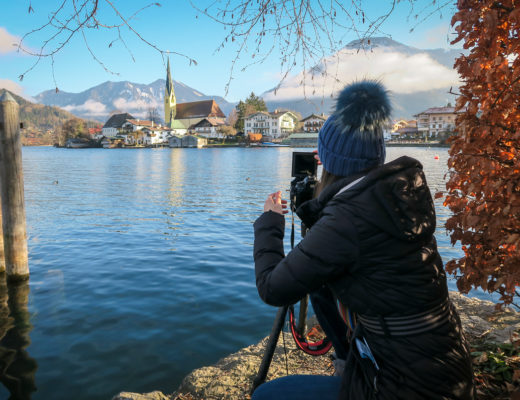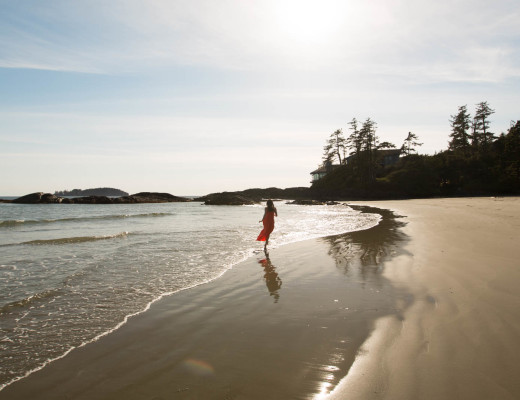Chip the Papillon. 50mm f/1.4 lens, f/4, 1/400, ISO 200.
1. Snap pets when they are sleepy and happy
Animals generally have somewhat predictable patterns of alertness and sleepiness. Like at 6am, they are usually wide awake. “Yap yap yap! Good Morning! I’m up, why aren’t you? ” Obviously, you don’t want to photograph a pet when they are rocketing around your living room or fast asleep. Try to find a time where they are fed, happy, and partially sleepy. That way they will be patient enough to sit and pose for you. Keep a few little treats in your pockets to keep that “happy-time” glimmer in their eyes or just to give you some extra snapping time.
2. Photograph pets at their eye level
Photos taken of animals from above are less personal and look very observational. If you want to show the personality of your fantastic pet, then you’ll have to shoot them at their eye-level. This often means crouching or lying down in some uncomfortable position in something wet, itchy, or hard, but it’s worth it. If you have smaller pets, you can prop them up on a pillow on a chair to make it a bit easier on your knees.
3. Find a simple, contrasting background
Use a simple background that contrasts with the colour of your pet’s fur, feathers, scales, tentacles (?) A grey cat against a grey wall will not stand out enough. Opt for a lighter colour to make your pet pop from the background.
4. Shoot in soft, even light
Indoors: Shoot in front of a big open window. Use a sheer curtain to diffuse the harsh light if it’s really sunny, or shoot a bit later in the day (about 1 hour before sunset). If you are getting a lot of shadow, use a bounce or a whiteboard to reflect light. Make sure you don’t blind your pet in the process. Meow!
Outdoors: Shoot in the shade or on a cloudy day. Make sure the light on your pet is consistent and not dappled. Harsh bits of sun mixed with shade never looks good and you can never really correct it in post. Avoid dappling! It can ruin the best of pictures.
5. Focus on the eyes
Whatever you do compositionally, make sure your focus on the eyes is tack sharp. It’s also nice if you can get the nose in focus as well. If you have sufficient light to increase your aperture, set it around f/5.6. If not, you can try using a tripod (depending on how patient your pet is), or try shooting your pet in profile.
If you have any other tips or tricks for photographing pets or any photos you’d like to share add them to the comments.




Lis311
December 12, 2008 at 7:07 PMDoes this work for children, too? Heehee.. I think I’m going to try it anyway ;-)
Thanks for the awesome suggestions!
chris
December 12, 2008 at 7:33 PMGreat jorb!
Now I know why my good animal pictures are good and the bad ones are bad. Height is usually an issue for me.
Jeremy Latham
December 12, 2008 at 8:17 PMGreat job Lisa. Erin seems to have it covered here too:
Erin’s new dog Frank
Nate
December 12, 2008 at 11:28 PMNice tips! Can you teach us how to safely clean our image sensor? I am way too afraid…
Mel
December 13, 2008 at 3:46 PMlove the portrait! now i just wish i had a pet to take pictures of day after day… hmph.
Pallian
December 14, 2008 at 3:43 AMHere’s a pic of my lazy dog: http://flickr.com/photos/pallian/2817329092/sizes/l/
And you’re right – take photos of your pets when they are sleepy… so much easier!
kaye
December 15, 2008 at 4:38 PMThanks for the post – I’m a new pet owner & only starting to get the hang of it.
All my tagged puppy pix are http://flickr.com/photos/sweetser/tags/aligatorsweetser/ .
I pretty much started with this http://flickr.com/photos/sweetser/2843975027/ (puppy’s 1st portrait!), then this http://flickr.com/photos/sweetser/2972497279/in/photostream/ (a whole series of her when I’m on my laptop but none particularly great), then did this just last week http://flickr.com/photos/sweetser/3103808576/.
I’m getting there …!
Ray Medina
December 15, 2008 at 6:16 PMThese are tips work great for kids too… I never thought of photographing pets, especially in the same way…
Thanks Lisa.
Mostly Lisa
December 15, 2008 at 7:06 PM@Lis311: Definitely! Especially the treats. Those work with adults too :P
@Jeremy Latham: She sure does! Gorgeous shots Erin!
@Nate: Me too :S I’ll go first and let you know how it goes.
@Mel: just borrow one from your neighbours!
@Pallian: totally!
@Pasquale: This plug-in is sixx.
@kaye: Thanks for sharing! Keep trying new angles and different locations and you’ll get your magical shot!
Mostly Lisa
December 15, 2008 at 7:07 PM@Ray Medina: you’re welcome!
Mike
December 16, 2008 at 5:45 AMThanks for the tips, Lis! Now to shamelessly plug my fav photos of my pup.
http://flickr.com/photos/mike360/3037307325/in/set-72157603552601171/
http://flickr.com/photos/mike360/3037304699/in/set-72157603552601171/
http://flickr.com/photos/mike360/2525867101/in/set-72157603552601171/
Roland Hulme
December 16, 2008 at 2:07 PMWonderful advice! Now just to get a pet…
I will try these techniques on my wee boy, though!
Walker
December 18, 2008 at 7:42 AMI love your blog. Fantastic. It has inspired me to try some new things on my blog. Thanks.
JeffDM
December 24, 2008 at 3:21 AMTo me, the photo up top tells me “don’t mess with me, I am the f-ing Batdog”.
Steve
December 24, 2008 at 10:54 PMYour a great Photographer.
I love taking pix of my Yorkie,and cats.
Digital Photography Tips
January 18, 2009 at 11:26 PMLOL cute picture
Adam
January 5, 2010 at 11:39 AMGreat advice. I just found your post, but I had previously written an article on photographing pets that mostly agrees with you: http://www.makethephoto.com/how-to-take-amazing-photos-of-your-dog/
One additional tip which may sound stupidly obvious but a lot of people miss when photographing pets is to make sure to fill the frame with the face of the pet. There’s nothing worse than a tiny dog lost in a giant photo. The closer your can get to the pet, the better the photo will be.
Mike Page
March 21, 2010 at 11:47 AMI know this is an older article, but I made an interesting discovery while photographing my cats. If you are shooting in lower light with an increased aperture, f/5+, the “walking stick” style mono-pod works wonders. It’s not as stable as a tripod, but it increases stability a lot, and it’s quick enough to keep up with a pet that’s starting to get restless.
Georg Panzer
April 28, 2010 at 1:35 AMWhen I shoot my dog on Aperture priority, I often find that the camera uses shutter speed that does not fit well with the dogs fast movements. The shutter speed should not go below 1/200 even when the dog is sitting still, due to i.a. unpredictable head movements.
Manual Mode with f/5.6 and 1/250 with auto ISO, could be a good camera setting.
Also, it is my impression that the dark and furry pet fools both the spot and matrix metering. I always adjust the exposure with at least one stop when I shoot my dog.
Chad Beisner
January 8, 2011 at 1:52 PMI took this one of my dog today http://flic.kr/p/98BDTL
Peti
January 8, 2011 at 2:10 PMSnap! Yesterday’s #mostly365 was just that, these are great tips thanks Lisa. http://campl.us/rHC
15 Photography Project Ideas to keep you shooting every day! | MostlyLisa.com | Photography tips & inspiration
January 21, 2011 at 4:18 PM[…] Pets are often easier to shoot than most people. Plus, they whine less and can be bribed with snacks. Here are some tips to get great pet photos. […]